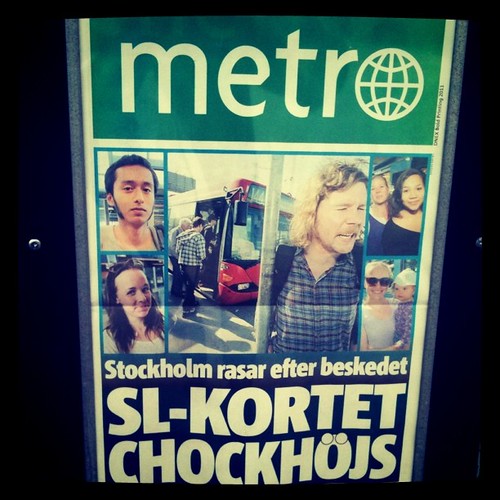The Swedish press reported yesterday that the Stockholm County Council and Stockholm Transport plan to raise the price of the monthly subway and bus card by 100 kr to a new price of 790 kr ($125). The card is very useful, providing free travel on all forms of public transportation in Stockholm County.
Naturally almost everyone interviewed is against a rate hike. It might be motivated, of course. There are increased costs for public transportation, and last year the company showed a loss.
But what I think is interesting is that no one ever takes up the inflation argument when these rate hikes hit. My feeling from listening to the BBC is that every time a fee is raised in the UK (except maybe for the recent hike in university tuition rates that cost the Liberal Democrats dearly in the local elections), there is an immediate comparison with the rate of inflation, to see if the increase is motivated.
The Swedish Central Bank is very hawkish on raising interest rates, not just to counteract inflation, but to forestall it. Yet no one has commented on the effects of Stockholm Transport’s huge price hikes over the years. Keeping down fees is not apparently perceived as a way to hold down inflation, although employers often cite keeping down salaries in the name of fighting inflation. There was one such call from a Vice Governor of the Central Bank in yesterday’s “Dagens Nyheter“.
When I arrived in Stockholm in 1975, tbe monthly card cost 50 kr (around $40 in current buying power). The increase to kr 790 means roughly a 1600% jump in 36 years.
According to the inflation calculator at ekonomifakta.se, kr 50 in 1975 adjusted for inflation would be kr 250 today. So the price of the monthly pass is more that three times the rate of inflation.
This might very well be motivated for many reasons. What is typical of Sweden is that no one is suggesting the effects on inflation. The consumers who have to pay the higher fees end up paying higher interest rates (and very likely seeing smaller salary increases) because of the added costs contributed by the higher fees.

